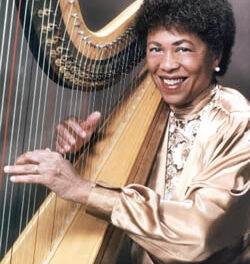Just when I thought the folks at the UNC School of the Arts had outdone themselves with their presentation of Tony Kushner’s Angels in America, Part 1, back in February (which hit all of the marks of near-Broadway caliber), I find I was wrong. UNCSA’s production of Harold Pinter‘s much-discussed 1965 hit The Homecoming, playing through March 29 at the Patrons Theatre on the UNCSA campus, is a stimulating night of theatre that engages its audience through its use of clever staging and the wildly talented ensemble’s understanding of this difficult piece. It may stand alone as one of the champion examples of UNCSA’s achievement in fostering tomorrow’s great theatre artists.
It comes as a fearless feat of courage that director Robert Francesconi stages this with students. Set entirely in the living room of a British house, the play follows the simple story of Teddy, the oldest of the three sons of Max (a gruff brute of an old man who is a walking contradiction and speaks as one too). After having lived in America for several years, Teddy and his wife Ruth arrive at his birthplace to find his family just as dysfunctional as it was when he left. With the arrival of the couple, tensions become high between Max, Max’s brother Sam, and the three sons (one a boxer, the other an enigma to all who encounter him). The night becomes one filled with power struggles, philosophical ruminations, and sentences that simply trail off as if…
Well, Pinter lets you fill in the rest.
Although the precision of the words and lines are crucial for jokes and revelations to land, the difficulty with a play like this is not what is said but the pauses that fill the space between the lines. Pinter is not worried so much about plot but instead about the inner tragedies of each character. With a writer like Chekov, subtext lies in the words and given circumstances that surround those words. Pinter seems to be after something more universal and existential. The smallest things tell the story: a gesture, a pause, the pat on a lap, all contribute to what is being said about the characters’ desires and wishes.
Pinter’s plays are often cited as being acquired tastes. He is famous to non-theatregoers for writing screenplays for The French Lieutenant’s Woman, contributing to the screenplay of The Remains of the Day, and writing the play and film adaptation of Betrayal (a movie that’s told backwards, the style of which was parodied on Seinfeld). He is challenging and stimulating while being rewarding, too. His plays are often ambiguous in plot and the characters’ personalities, and, like a good Ingmar Bergman film or Monet painting, they linger in your mind long after seeing them.
The set up of the production finds the audience surrounding a spare set of a few chairs, a table, some glasses, and enough props to fit into a suitcase. The actors never left the stage; once they exit a scene, they simply step out of the lit living room and observe, almost like us, voyeuristically. Behind the audience float empty picture frames that establish a sense of nothingness of the time of the play. Designer Melissa Anderson and director Francesconi almost establish, with this, that this play is in a twilight-zone-type area where time seems trivial.
It takes a great director and a talented cast to tackle material as complex and subtle as this… and to make the little that actually goes on accessible and easy to follow. The players delivered the characters with mastery of the text and everything underneath; I wholly wish I could go back and watch it again, just so I could pick up things I may have missed. Standouts included the couple Teddy and Ruth, masterfully played by Dylan Arnold and Monica Bell.
While watching, I was reminded of a stellar production of Pinter’s The Lover I saw a few weeks back at UNC Greensboro, directed skillfully by Sarah Hankins, which told the story of a married couple who engages in a role-playing game to spice up their seemingly droll lives. What struck me then struck me again while watching The Homecoming: Pinter’s plays are about the tragedy of the ordinary. Or, as Robert W. Corrigan wrote, “[Pinter’s plays are about] ordinary people in ordinary situations… experiencing King Lear, Macbeth, or Oedipus the King – … the great dramas of history [that] are occurring every day in the lives of each of us.” I thank UNCSA for creating this night of exploration, and Pinter for dramatizing the fear of not what is to come but of what simply is.
The Homecoming continues through March 29. For more details on this production, please see the sidebar.











